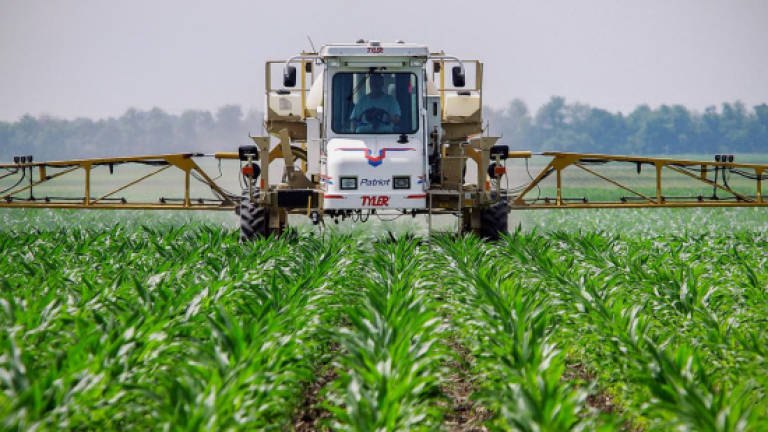Weedkiller glyphosate, controversial but still most used

PARIS: It is the most popular weedkiller in the world but concerns about the toxicity of glyphosate have led to growing demands for restrictions.
EU countries vote Thursday on a proposal to renew the weedkiller's licence for five rather than 10 years, with France — one of the heaviest users — calling for a three-year permit.
The European Parliament says the licence should be renewed only until 2022 and banned thereafter.
Here is some background on glyphosate and how it is viewed in other countries.
Growing use
Since it was introduced in the United States in 1974 by pesticides and seed maker Monsanto as Roundup, the use of the glyphosate — which is sprayed on food crops but also widely outside of agriculture, such as on public lawns and in forestry — has soared across the globe.
The European Commission says it is the most frequently used herbicide in the world and in Europe.
Total worldwide use rose more than 12-fold from about 67 million kg in 1995 to 826 million kg in 2014, according to research published in the Environmental Sciences Europe journal in February 2016.
There was a dramatic jump after the introduction in 1996 of genetically engineered "Roundup Ready" crops, such as soybean and maize, that survive glyphosate while it kills weeds, it says. Globally glyphosate use has risen almost 15-fold since then.
Monsanto's patent expired in 2000 and it is now produced by various companies and under different names.
A 2015 study by the World Health Organization's cancer research agency concluded that the weedkiller was "probably carcinogenic".
However the European Food Safety Authority and the European Chemicals Agency say it is unlikely to cause cancer in humans. The US Environmental Protection Agency says the product "has low toxicity for humans".
Banned in Sri Lanka
Sri Lanka banned the import and use of glyphosate in June 2015 following reports that it was responsible for a sharp increase in kidney disease.
However the scientific community notes there is no reliable evidence of this link and Sri Lanka's tea industry is lobbying to get the ban lifted.
Under review
The weedkiller was among 53 farming products listed to be banned in El Salvador in 2013. However it and 10 others were delisted because of a lack of international regulation and due to their importance in agriculture. A technical committee is studying the risks.
The Brazilian public ministry in April 2015 asked health regulatory agency Anvisa to urgently evaluate the toxicology of glyphosate with a view to a possible ban. Anvisa said in Aug its analysis continues. Brazil's powerful agriculture sector would be unlikely to support curbs.
Local restrictions
In Britain the government, with the backing of the National Farmers' Union, supports the continued use of glyphosate but a number of local authorities have limited its use.
Most notable is the London borough of Hammersmith and Fulham which halted the standardised spraying in public spaces with glyphosate in June 2016.
Edinburgh, Brighton and Cornwall are among other areas looking at phasing it out.
California in July this year became the first US state to issue a warning on glyphosate by adding it to a list of chemicals known to cause cancer. This will not result in a state-wide ban but requires companies selling the product to flag warnings. Some US cities ban its use in parks.
Colombia, the world's largest cocaine producer, suspended in 2015 its use of glyphosate for aerial spraying of illicit crops on concerns it may be carcinogenic. It is still used in manual fumigation and authorities are pushing for a return to aerial spraying.
There are also limits in several European countries such as in Italy which in 2016 ended its use in public areas such as parks and football grounds.
The Dutch government in March 2016 stopped the use of products containing glyphosate on surfaces and roads, and in France it has been banned for use in public spaces since Jan. — AFP